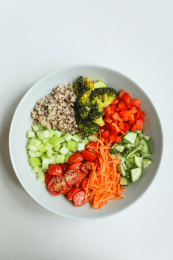When paying the monthly bills, it may feel like the paycheck just doesn’t go as far as it once did, and this is especially true in a time of price increases. With some of the recent price increases, it can feel as if your income is dropping even though your paycheck remains the same.
It is important for people to realize that this is happening for reasons that are out of their control. To combat that, it is important to take stock of the family’s resources. This is a time to look at our values and set some priorities for our spending.
 Consider substituting goods and services. Buying things when they are on special or using coupons are ways to help reduce costs.
Consider substituting goods and services. Buying things when they are on special or using coupons are ways to help reduce costs.
Transportation is a large expense and one that should be considered when budgeting. It is also encouraged to keep up on car maintenance to avoid costly repairs.
Along with car maintenance, it’s important for people to winterize their homes. This can save on heating expenses.
Another small adjustment people can make to extend their financial resources is to minimize food waste. If you don’t like leftovers and end up throwing them out, that is like putting money in the trash. Try cooking in smaller portions or freeze the excess food for a future meal.
By: Brenda Langdon

